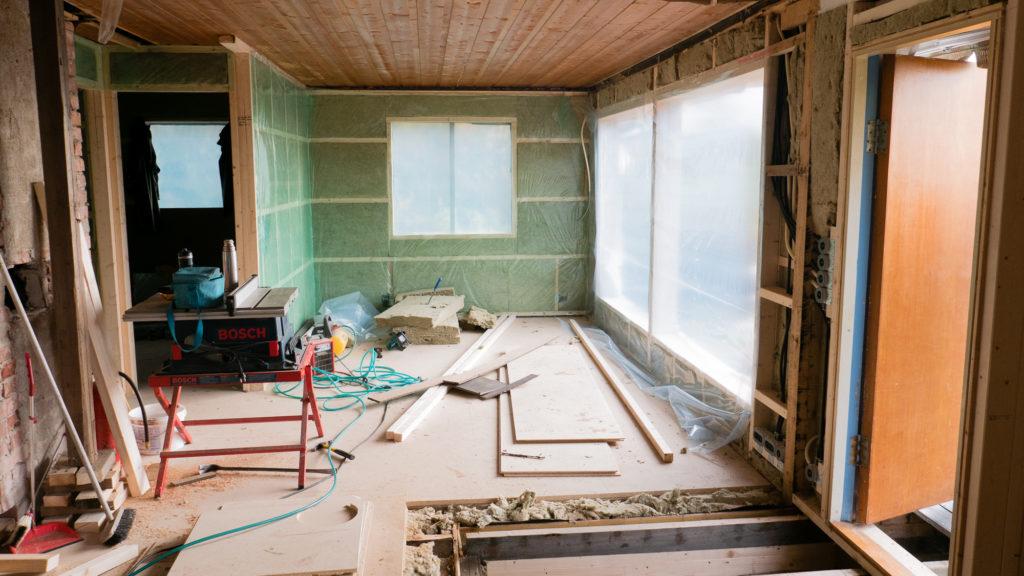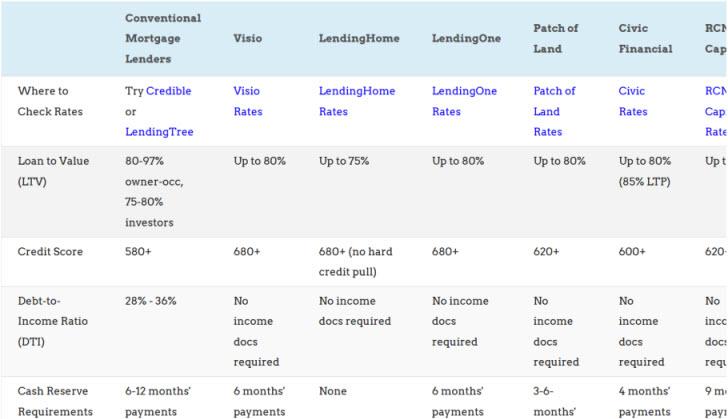-
- Keep detailed records of all agreements, payments, communications, and any issues with the contractor’s work. Photos of the work and a written record of all interactions can provide valuable evidence if you need to pursue formal action later.
- Before escalating, address the problems directly with the contractor, clearly outlining the issues and your expectations for corrections. Allow them to fix the work according to the original contract terms, as many contractors will want to maintain their reputation and client satisfaction.
- If direct resolution fails, consider escalating through options like mediation or arbitration, which offer a structured but less formal way to resolve disputes. As a last resort, small claims court may allow you to recover damages or force the contractor to remedy the work, though it requires time and resources.
Disclaimer
The information provided on this website is for general informational purposes only and should not be construed as legal, financial, or investment advice.
Always consult a licensed real estate consultant and/or financial advisor about your investment decisions.
Real estate investing involves risks; past performance does not indicate future results. We make no representations or warranties about the accuracy or reliability of the information provided.
Our articles may have affiliate links. If you click on an affiliate link, the affiliate may compensate our website at no cost to you. You can view our Privacy Policy here for more information.

Are you struggling with how to best handle a bad contractor? No doubt, working with contractors ranks among the hardest parts of real estate investing.
However, as a real estate investor, unless you have a property manager, working with contractors unavoidably comes with the job, whether building a property, remodeling or making repairs.
Be proactive when learning about hiring or firing contractors so that if trouble arises, you are prepared.
Assemble All Evidence
The first step when dealing with a bad contractor is to gather all paperwork and evidence. During the hiring process, you should have collected copies of their license, bonding, and insurance paperwork and a clear written contract with the scope of work.
Take photos throughout each project stage, take notes about progress or lack thereof, delays, and so forth.
In addition to information about their work, keep records of all communication, including phone calls, emails, and texts. Specifically, any important agreement between the two of you should be put in writing. Unfortunately, we cannot trust the old “handshake” agreement in situations involving thousands of dollars.
Finally, keep track of all deposits, materials provided, and payments to the contractor. Make all payments either electronically or via check. Where is the money trail if you paid half of their bill in cash?
Additional Documentation to Support Your Case
Remember to maintain a collection of supporting evidence beyond the basic paperwork to strengthen your position if issues with the contractor escalate. Below are some of them:
| Evidence | Why It’s Important |
| Video Recordings | Provides dynamic proof of work conditions and progress |
| Building Permits | Shows proper authorization and compliance with local regulations |
| Material Receipts | Verifies actual costs and quality of materials used |
| Subcontractor Information | Documents who actually performed specific work |
| Expert Assessments | Third-party verification of work quality or problems |
| Timeline Documentation | Establishes a pattern of delays or missed deadlines |
Fire the Contractor
While this seems obvious, it is not always the most comfortable thing to do. Initially, your contractor will most likely challenge the firing as a breach of contract. This is precisely why having a record of how they actually breached the contract agreement first is key. Some things to consider as you document their misdeeds:
-
- Did they ever not show up when they were supposed to?
- Were non-agreed materials used?
- Did they consistently stick to the schedule?
- Did they go over budget?
Don’t dig yourself into a deeper hole. After you have compiled sufficient evidence of the contractor’s poor job, fire them immediately so that you are not continuously paying for bad or mediocre work.
File a Bond Insurance Claim
Before proceeding, note that you can only file a claim if the contractor is bonded. Therefore, you should only work with bonded and insured contractors for large projects.
You can reclaim the money you already spent by communicating with the contractor’s insurance company. Even the threat of filing a claim often persuades wayward contractors to finish the work. But do it properly! You never know when you need to escalate to the real thing.
File a Complaint to the State Licensing Board
If the contractor is licensed, you can file a claim to the state board if needed. No contracting company wants this to happen. Licensed contractors can charge more and earn more projects, so they don’t want to jeopardize their licensing in any way.
You can force the state board to act by threatening a complaint. In these cases, they will usually want to resolve the conflict, and you are also more likely to receive your money back. Look up your specific state’s complaints process for more information.
Go to Court
By filing a suit in a small claims court, you can receive justice at a small price. Not only are suits in small claims affordable, but they also offer the option for you to represent yourself with no attorney or legal fees.
Of course, if you paid your contractor a large amount, consider hiring an attorney even if the amount falls under the jurisdiction of small claims court.
Post Public Reviews
Although this strategy may not yield financial gains, the threat of posting poor reviews on many websites might convince the contractor to fix their faulty work.
Even if that doesn’t work, at least the next person looking to hire a contractor may think twice before hiring them.
Specific Problems with Bad Contractors
Different problems require different solutions.
Here are some examples of common contractor problems and how to address them.
Poor Work
If the contractor completed the job in full and on time but did shoddy work, you have the burden of proof. This includes taking photos, making lists of materials used, collecting opinions from other contractors, and so on.
The first step in this scenario is to politely ask the contractor to fix some of the work. Showing anger or resentment may result in the contractor continuing to do poor work or potentially messing something up even more.
If they refuse, fire immediately and use the actions provided above.
Quote Changes Halfway Through the Job
Contractors love to underbid jobs and then find excuses to charge more once they start the work.
When collecting bids, be clear to all contractors that you have a tight budget limit and can’t go over it. Tell them any surprise extras will result in immediate contract termination — and follow through on it.
While it would be difficult to prove that this was intentional on the contractor’s behalf, taking a situation like this to the state licensing board sometimes does the trick.
Job Delays
If you have been investing in real estate for some time, you already know that it is difficult to predict how long it takes to remodel, renovate or build a property. Often, projects go over, which means longer vacancies for landlords.
The greatest incentive any contractor will have is money. If you only pay them a small portion of the work before it is completed, they have a great financial incentive to get the work done.
You can also prevent delays through constant communication. Call them daily to check in, and if possible, visit the job site to review daily progress. Point out workmanship problems as they arise. Confirm that they’re on schedule. By staying on top of them, they know they can’t slack off or work side jobs without you noticing.
Unfinished Work
If the contractor doesn’t complete their job or if they don’t respond back to you post-payment, you should immediately call their insurance company to file a claim. Use the steps above if this is the case and see where you can retrieve your money back.
(article continues below)
Signs of Poor Workmanship
Before confronting a contractor about subpar work, you must know exactly what you’re looking at. Understanding the signs of poor workmanship strengthens your position and helps ensure you’re not crying wolf over minor issues that fall within normal construction tolerances.
The most immediate red flags often show up in the finishing work. Keep an eye out for these common issues:
-
- Uneven surfaces (floors, walls, or countertops that aren’t level)
- Visible gaps around windows, doors, or trim
- Paint problems like drips, uneven coverage, or bleeding edges
- Misaligned tiles or inconsistent grout lines
Functional issues are even more serious than aesthetic ones. Doors and windows that stick or won’t close properly often indicate structural problems or poor installation. Electrical work also requires special scrutiny – outlets that don’t work, fixtures that flicker, or visible wiring aren’t just eyesores; they’re potential safety hazards. The same goes for plumbing issues like leaks, poor water pressure, or improper drainage.
However, some problems might not show themselves immediately. These delayed issues often include:
-
- Moisture problems appear weeks after completion
- Cracks developing in fresh drywall or concrete
- Paint peeling prematurely
- Fixtures becoming loose or unstable
Here’s a useful tip: If you’re uncertain about whether something qualifies as poor workmanship, consider bringing in another licensed contractor for an inspection. Their assessment can provide valuable documentation and peace of mind.
How to Avoid Issues with Bad Contractors
If you are reading this, you have clearly read about the vast number of issues that occur when hiring contractors. While they are great if they complete their jobs on time and within budget, there is a reason why working with contractors can be a pain; otherwise, I would not be writing this article.
If this is your first time hiring a contractor, follow these steps to minimize headaches.
Start New Contractors on Smaller Projects
The first house renovation or remodeling project you invest in should be small. Perhaps a paint job or tile fixing. It is cheaper, but you can also gauge how that specific contract company completes its work. In other words, you are building trust before hiring them for a large renovation project.
Use Licensed and Bonded Contractors on Larger Projects
A licensed contractor is much more responsible, for they have much more to lose. Always hire licensed contractors when flipping a house or making a major renovation. Not only do they probably have greater experience, but the quality of work is most likely greater as well.
Check Reviews
See what others have said about this contracting company! Learning about others’ experiences allows you to understand what you are getting yourself into. If other real estate investors had a horrific time with a certain company, my advice: don’t hire that company!
Take Photos
Before, after, and throughout the entire project process, take photos of the work as a whole as well as specific detailings. As mentioned previously, photos are your greatest weapon in any dispute or issue. Not only will the contractor notice your involvement in the project and want to ensure their work looks good, but you will also have photo documentation if an issue arises.
Final Thoughts On Dealing With Bad Contractors
Real estate investing is a great way to earn income. That being said, some aspects of the job are really difficult, such as dealing with contractors. Open communication and negotiation with contractors are two of the most crucial parts of working with them. Not only do you want the job done to increase property value, but having a good relationship with a trustworthy contractor can make all the difference in the world. Do your research before hiring a contractor and ensure you are prepared and knowledgeable about the firing process if needed.♦
What problems have you experienced with contractors and handymen? How have you addressed it?





























I have always experienced bad contracts. Thanks to you now I know how to deal with them.
Glad you found it helpful Cassandra!
Well well, if you are unlucky you will come across bad contractors. Mostly there are good contractors and that is why the real estate business keeps on growing.
I didn’t know that I can file a small claims with no Attorney or any Legal fees. Thanks!
Glad it was helpful Chelsea!
Very well-written article. Dealing with such contractors has been a huge headache for me!
Thanks Julieta, and I’m sorry you’ve had such problems with contractors!
Well, not every contractor is a bad contractor. Sometimes people are themselves annoying and they blame the contractors.
Fair enough Murad!
As soon as you get bad vibes from your contractor, just end the contract with them. It is not suitable to carry on with people you are not getting good vibes.
I hear you Nahme!
I never experienced bad contractors and hopefully not in my life. My contractor always do a great job and I wish our partnership will grow stronger.
Glad to hear it Melissa!
I only look for contractors that are recommended by friends and have at least 4 out of 5 stars reviews. Bad contractors are a pain in the neck and pain in the wallet too!
I hear you Mr. Eco!
Great advice. I have been in this situation a few times unfortunately